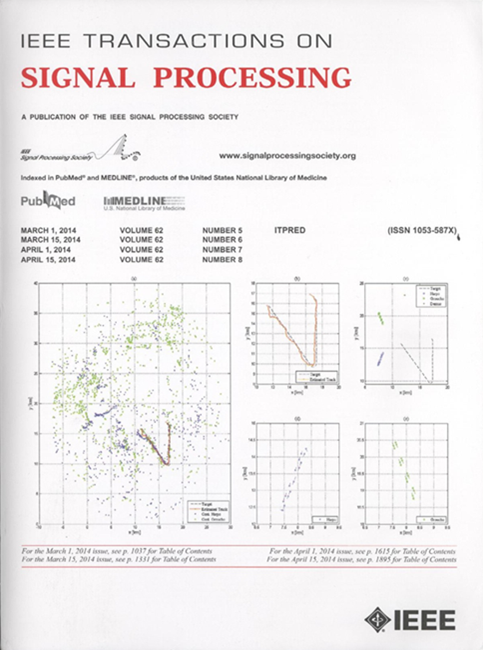MAML-KalmanNet: A Neural Network-Assisted Kalman Filter Based on Model-Agnostic Meta-Learning
IF 4.6
2区 工程技术
Q1 ENGINEERING, ELECTRICAL & ELECTRONIC
引用次数: 0
Abstract
Neural network-assisted (NNA) Kalman filters provide an effective solution to addressing the filtering issues involving partially unknown system information by incorporating neural networks to compute the intermediate values influenced by unknown data, such as the Kalman gain in the filtering process. However, whenever there are slight changes in the state-space model (SSM), previously trained networks used in NNA Kalman filters become outdated, necessitating extensive time and data for retraining. Furthermore, obtaining sufficient labeled data for supervised learning is costly, and the effectiveness of unsupervised learning can be inconsistent. To this end, to address the inflexibility of neural network architecture and the scarcity of training data, we propose a model-agnostic meta-learning based neural network-assisted Kalman filter in this paper, called MAML-KalmanNet, by employing a limited amount of labeled data and training rounds to achieve desirable outcomes comparable to the supervised NNA Kalman filters with sufficient training. MAML-KalmanNet utilizes a pre-training approach based on specifically tailored meta-learning, enabling the network to adapt to model changes with minimal data and time without the requirement of retraining. Simultaneously, by fully leveraging the information from the SSM, MAML-KalmanNet eliminates the requirement of a large amount of labeled data to train the meta-learning initialization network. Simulations show that MAML-KalmanNet can mitigate the shortcomings existing in NNA Kalman filters regarding the requirements of abundant training data and sensitive network architecture, while providing real-time state estimation across a range of noise distributions.基于模型不可知元学习的神经网络辅助卡尔曼滤波
神经网络辅助卡尔曼滤波器(NNA)通过结合神经网络计算受未知数据影响的中间值,如滤波过程中的卡尔曼增益,为解决涉及部分未知系统信息的滤波问题提供了有效的解决方案。然而,只要状态空间模型(SSM)发生微小变化,以前用于NNA卡尔曼滤波器的训练网络就会过时,需要大量的时间和数据进行再训练。此外,获得足够的标记数据用于监督学习是昂贵的,并且无监督学习的有效性可能不一致。为此,为了解决神经网络架构的不灵活性和训练数据的稀缺性,我们在本文中提出了一种基于模型不可知的元学习的神经网络辅助卡尔曼滤波器,称为mml - kalmannet,通过使用有限数量的标记数据和训练轮来获得与经过充分训练的有监督的NNA卡尔曼滤波器相当的理想结果。mml - kalmannet利用了一种基于专门定制的元学习的预训练方法,使网络能够以最少的数据和时间适应模型变化,而无需再训练。同时,通过充分利用SSM的信息,mml - kalmannet消除了训练元学习初始化网络所需的大量标记数据。仿真结果表明,mml - kalmannet可以克服NNA Kalman滤波器在训练数据丰富和网络结构敏感等方面存在的缺点,同时提供跨噪声分布范围的实时状态估计。
本文章由计算机程序翻译,如有差异,请以英文原文为准。
求助全文
约1分钟内获得全文
求助全文
来源期刊

IEEE Transactions on Signal Processing
工程技术-工程:电子与电气
CiteScore
11.20
自引率
9.30%
发文量
310
审稿时长
3.0 months
期刊介绍:
The IEEE Transactions on Signal Processing covers novel theory, algorithms, performance analyses and applications of techniques for the processing, understanding, learning, retrieval, mining, and extraction of information from signals. The term “signal” includes, among others, audio, video, speech, image, communication, geophysical, sonar, radar, medical and musical signals. Examples of topics of interest include, but are not limited to, information processing and the theory and application of filtering, coding, transmitting, estimating, detecting, analyzing, recognizing, synthesizing, recording, and reproducing signals.
 求助内容:
求助内容: 应助结果提醒方式:
应助结果提醒方式:


